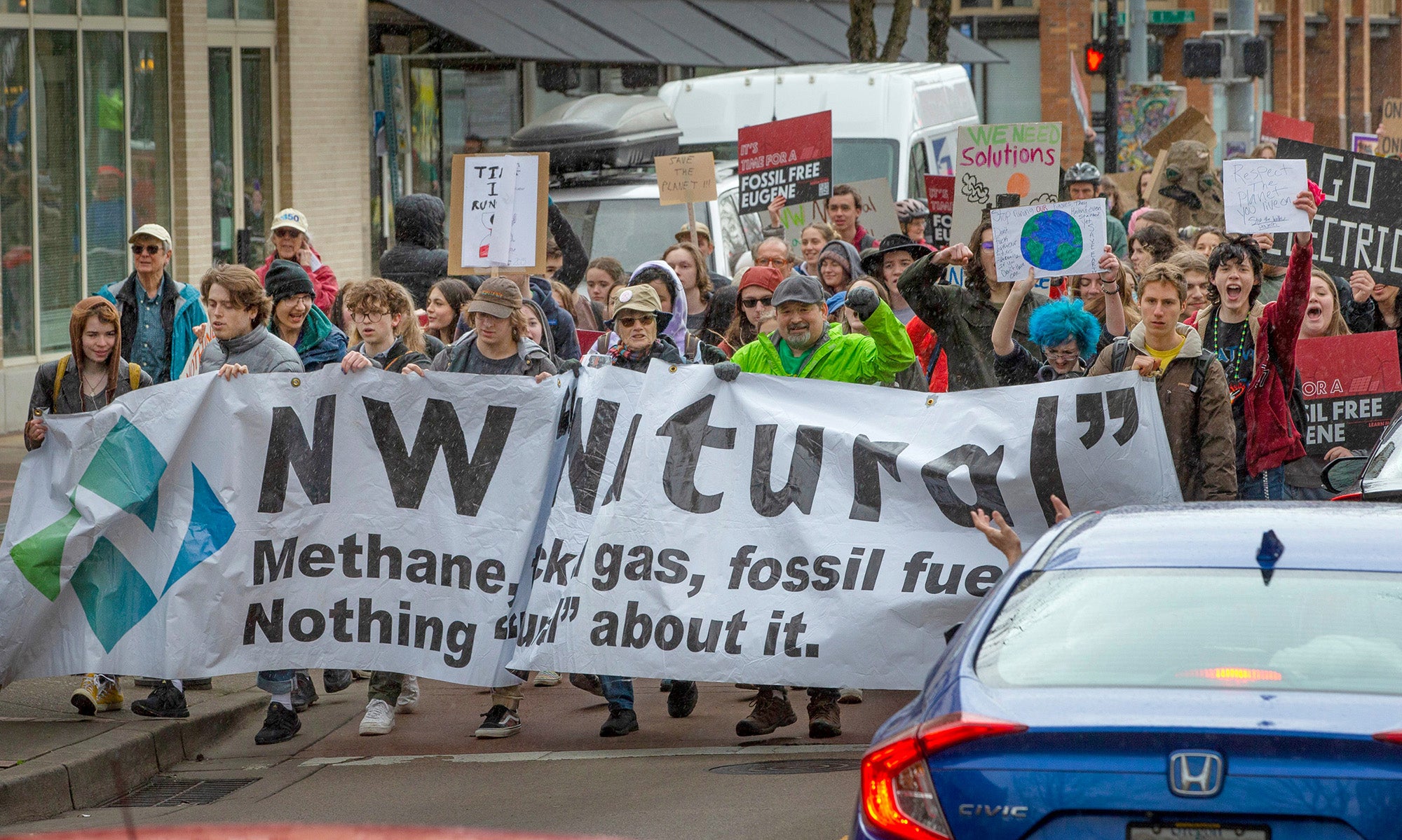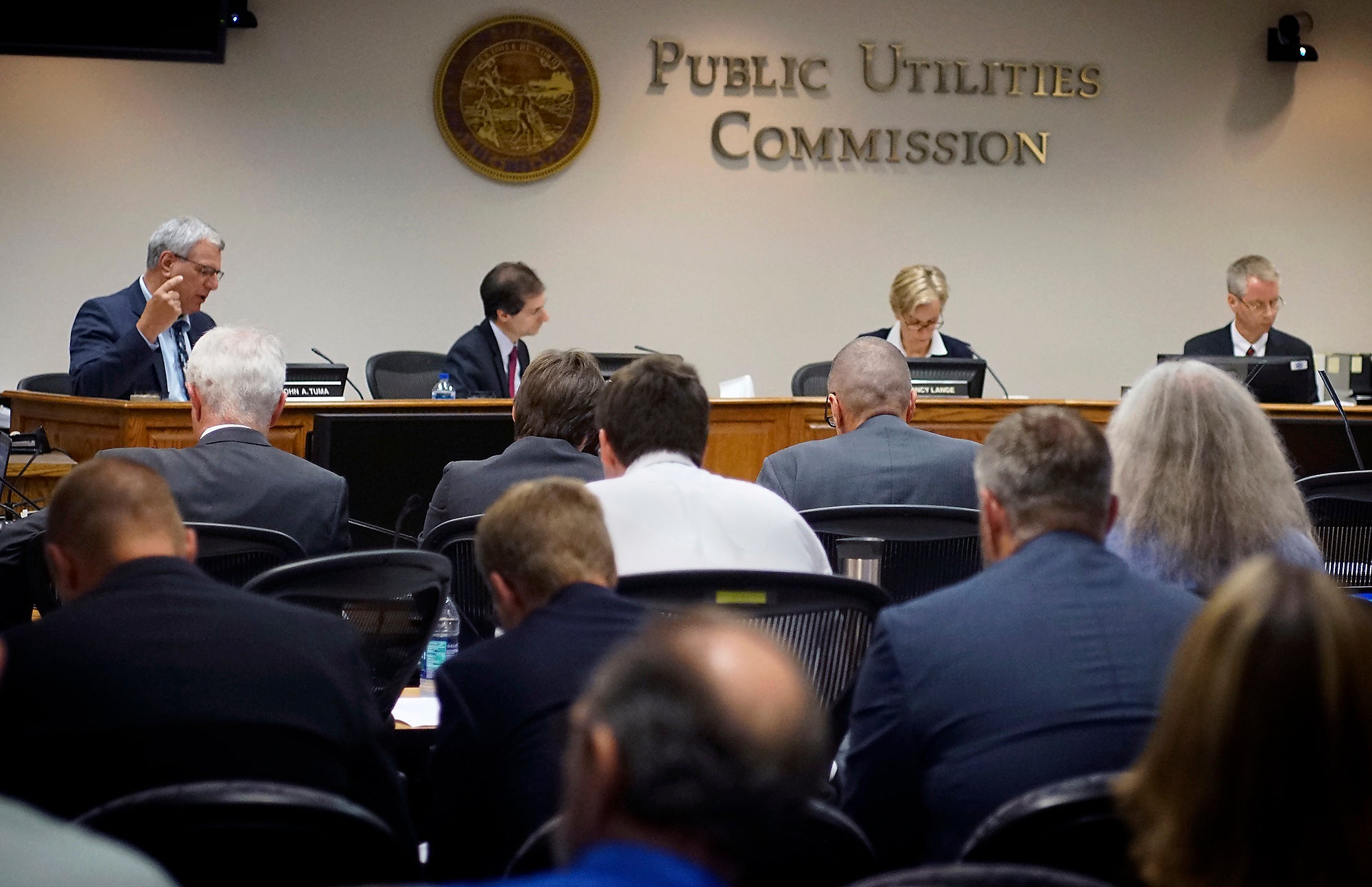Oregon Energy Victory Saves Consumers Millions, Makes Climate Progress
A new ruling will lower Oregon energy users' bills and curb a utility’s deceptive practices.

This page was published a year ago. Find the latest on Earthjustice’s work.
As the weather turns frosty, Oregon’s energy customers will soon get relief from skyrocketing energy bills thanks to a precedent-setting ruling by state regulators that could reverberate across the country.
In late October, Oregon regulators took action against the state’s largest utility, Northwest Natural. They ordered the utility to phase out gas line extension subsidies and demanded more transparency to ensure customers aren’t charged for anti-climate lobbying. The Public Utility Commission’s decision, brought on by Earthjustice litigation, will save customers millions of dollars. It also shows the U.S. can still make significant progress on climate, no matter who’s in the White House.
This precedent-setting victory is part of Earthjustice’s broader goal to accelerate the U.S. transition to 100% clean energy. Across the country, our attorneys are challenging the fossil fuel industry’s longstanding efforts to push its deadly and costly products onto the American public.
NW Natural, a gas utility that serves roughly 2.5 million customers in Oregon and southwest Washington, has stalwartly resisted the transition to reducing greenhouse gas emissions from buildings. But it’s hardly alone. Gas utilities across the U.S. often push to preserve a system in their favor, in part by slow rolling the clean energy transition we all need to have affordable energy bills and avoid climate catastrophe.
That’s why Earthjustice is fighting these monopolistic entities in dozens of state regulatory bodies commonly known as Public Utility Commissions (PUCs). These commissions often help determine how much utilities can charge users for their energy and whether the power comes from dirty or clean energy sources. Since 2007, Earthjustice has made the case for cutting energy costs and cleaning up our power grid in these often overlooked but important regulatory forums by using our skills as litigators and our vast experience on energy issues.
In the NW Natural litigation we represented a coalition of advocates, including Community Energy Project and Coalition of Communities of Color, in 2022 and 2024 rate cases to protect consumers. Earthjustice successfully removed hidden expenses from energy bills by highlighting that the utility was illegally charging households for aggressive anti-climate lobbying, promotional advertising, and investments in gas system expansion.
Among other things, Earthjustice discovered that NW Natural charged its customers to target school children with pro-fossil fuel advertising that included creating pro-gas children’s booklets.

The cover of a children’s book about natural gas made by NW Natural.
As a result of this casework, the commission also made a historic decision to limit NW Natural’s efforts to charge its customers for building out its own business. For more than a decade, NW Natural has received a longstanding subsidy of almost $3,000 for every new residential customer it adds to its gas line system. In 2022, the commission reduced the subsidy by half, thanks to Earthjustice litigation, and its latest ruling in 2024 phases out gas subsidies entirely by 2027. Not only is the move a huge win for Oregon energy user’s pocketbooks, but it will also encourage utilities to replace polluting fossil fuels with clean energy and advance a modern grid.
“The commission’s order reflects serious concern about NW Natural’s spending,” says Earthjustice attorney Jaimini Parekh. “Its ratepayers should not bear the costs of a dying industry during a climate emergency.”
Finally, Earthjustice negotiated a settlement with all the parties to provide deep discounts for low-income customers on their utility rates, to ensure more affordable energy bills. The settlement also proposed creating a debt relief program for the lowest-income ratepayers.
“Access to energy is a basic human right,” says Parekh. “These cases are getting real relief for thousands of people, and especially for those who need it the most.”

Commissioner John A. Tuma, left, speaks during a Minnesota Public Utilities Commission meeting in 2018, in St. Paul, Minn. (Richard Tsong-Taatarii / Star Tribune via AP)
Reducing energy costs and pushing utilities to expand energy efficiency measures is just the tip of the spear when it comes to Earthjustice’s all-encompassing strategy to fundamentally change how we power our lives. Our attorneys and clients are setting precedents and maintaining a sustained presence before PUCs in more than a dozen states, while intervening strategically in others. In Kentucky, for example, we secured a historic decision to retire several coal and gas units with approval of a major solar buildout, increased efficiency investments, and the state’s largest utility-scale battery plant.
With each win, we’re building the case for ensuring a just and equitable clean energy transition for all, while driving the nation’s energy policy.
“We’re at the forefront of inventing a new economy that’s less harmful to people and the planet,” says Parekh. “It’s incredible to be a part of that.”
Earthjustice’s Clean Energy Program uses the power of the law and the strength of partnership to accelerate the transition to 100% clean energy.
Established in 1987, Earthjustice's Northwest Regional Office has been at the forefront of many of the most significant legal decisions safeguarding the Pacific Northwest’s imperiled species, ancient forests, and waterways.